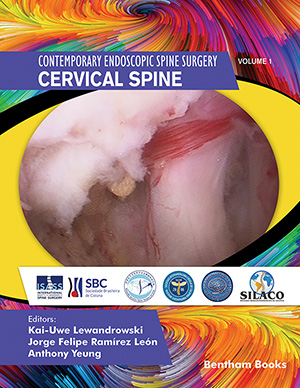Abstract
Anterior endoscopic cervical discectomy (AECD) is a surgical procedure born in the era of minimally invasive spine surgery. A cervical discectomy through a 4 mm incision, in skilled hands, can be an ambulatory outpatient procedure where the patient may be discharged the same day from the surgical facility. Recent advances in video-endoscopic equipment and decompression tools have facilitated endoscopic spinal surgery techniques to common soft disc herniations in the cervical spine. The authors review the procedural steps of the procedure and position it as a motion preservation surgery that may alleviate radicular symptoms in the upper extremities that have not responded to non-operative care. Unrelenting arm pain in the younger patient with early degeneration of the cervical spine motion segments may be the most appropriate indication for the AECD. Procedural details and outcomes from a clinical series are reviewed to illustrate technical pearls and postoperative problems common to the procedure – with segmental kyphosis and vertical collapse of the disc space being the most relevant – if not carried out with attention to detail.
Keywords: Anatomy cervical spine, Anterior endoscopy, Cervical disc herniation.






















